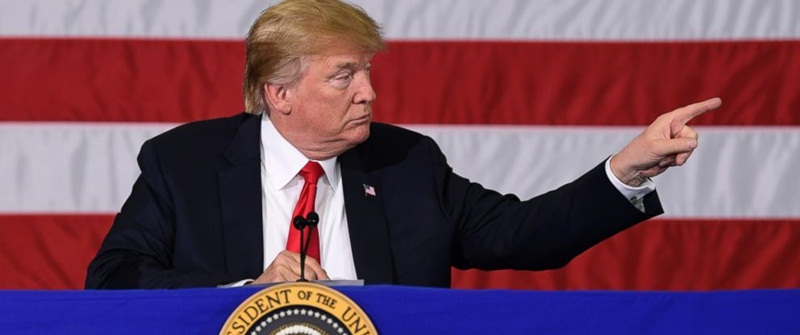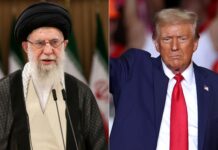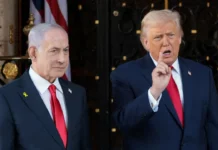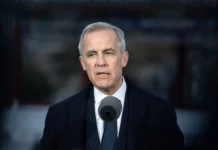WASHINGTON: US President Donald Trump on Wednesday vowed to rectify “calamitous” trade policies and sought to expand his power to impose reciprocal tariffs which could have implications on bilateral trade with countries like India.
Trump during his annual State of the Union address told Congress that Washington’s aggressive trade negotiations with China would mean an end to its alleged “theft” of US jobs and wealth.
“We are now making it clear to China that after years of targeting our industries, and stealing our intellectual property, the theft of American jobs and wealth has come to an end,” Trump said in his address to the joint session of the US Congress.
“Therefore, we recently imposed tariffs on USD 250 billion of Chinese goods — and now our treasury is receiving billions of dollars a month from a country that never gave us a dime. But I don’t blame China for taking advantage of us, I blame our leaders and representatives for allowing this travesty to happen.
Trump said he has great respect for Chinese President Xi Jinping and his administration was working on a new trade deal with China.
“But it must include real, structural change to end unfair trade practices, reduce our chronic trade deficit, and protect American jobs,” Trump said.
To build on American incredible economic success, he said one priority is paramount reversing decades of calamitous trade policies. So bad.
“I am also asking you to pass the United States Reciprocal Trade Act, so that if another country places an unfair tariff on an American product, we can charge them the exact same tariff on the same product that they sell to us,” Trump said.
The United States Reciprocal Trade Act, if signed into law, could have consequences on bilateral trade with countries like India.
The Reciprocal Trade Act would give him authority to levy tariffs equal to those of a foreign country on a particular product if that country’s tariffs are determined to be significantly lower than those charged by the United States.
It would also allow Trump to take into account non-tariff barriers when determining such tariffs.
Trump has been alleging that many countries all over the world have taken advantage of the US.
India in February last year slashed the customs duty on imported motorcycles like Harley-Davidson to 50 per cent after Trump called it “unfair” and threatened to increase the tariff on import of Indian bikes to the US.
During a White House event on the Reciprocal Trade Act in January this year, Trump flashed out a green colour board with examples of non-reciprocal tariffs from various countries, including from India.
“Look at motorcycles as an example. (In) India, it was 100 per cent. I got them down to 50 per cent, just by talking for about two minutes. It’s still 50 per cent vs 2.4 per cent (on imported motorcycles to the US). Again, other than that, it’s a very fair deal,” the president had said.
Trump at that time also pointed out to the high tariff by India on import of wines.
“India has a very high tariff. They charge a lot of tariffs. You look at whisky… India gets 150 per cent, we get nothing,” he had said.
The Reciprocal Trade Act is likely to face an uphill fight in Congress, where many lawmakers in both parties have opposed Trump’s trade policies.
A bipartisan group of lawmakers introduced legislation to limit Trump’s ability to use national security as a rationale for tariffs. The business community is rallying behind the bill. PTI







